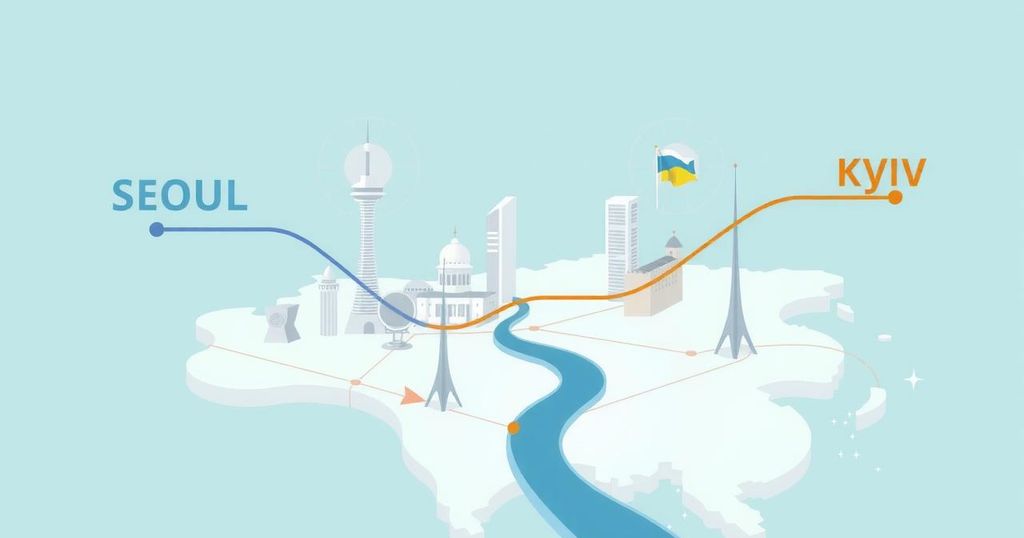On 17 March, South Korean and Ukrainian diplomats discussed the repatriation of North Korean POWs held by Kyiv. South Korean law regards these POWs as citizens, and their potential defection was emphasized in talks. Reports noted asylum interest from one of the captured soldiers, amid ongoing strategic military developments involving North Korea and Russia.
On 17 March, senior diplomats from South Korea and Ukraine engaged in phone discussions regarding the repatriation of North Korean prisoners of war (POWs) held by Kyiv, as reported by Seoul’s Foreign Ministry. Under South Korean law, these POWs are recognized as South Korean citizens.
During the call, South Korea’s Foreign Minister, Cho Tae-yul, spoke with Ukrainian Foreign Minister Andrii Sybiha regarding the fates of two North Korean soldiers captured by Ukraine. Cho emphasized that, according to South Korea’s Constitution, the captured soldiers are considered citizens, and the nation would welcome their defection should they express a desire to do so.
Previous reports noted that South Korean media outlet Chosun Ilbo had interviewed the two prisoners on 19 February. In the interview, one soldier, who served as a sniper-scout, indicated his interest in seeking asylum in South Korea.
Additionally, South Korea has reported increases in the deployment of North Korean soldiers to Russia amidst the ongoing conflict. This development highlights the intricate dynamics of international relations and security considerations in the region, particularly regarding North Korea’s affiliations.
Meanwhile, reports mention a two-pronged Russian effort in Kursk Oblast aimed at rescuing the North Korean soldiers, which ultimately did not succeed. Furthermore, Ukraine’s intelligence has claimed that North Korea supplies a significant portion of Russia’s munitions, accounting for approximately 50%.
The recent discussions between South Korea and Ukraine reflect a nuanced diplomatic engagement concerning North Korean prisoners of war. With the identification of these soldiers as South Korean citizens under domestic law and an expressed willingness for asylum by one, the situation underscores complex geopolitical dynamics amid ongoing regional tensions and military conflicts.
Original Source: euromaidanpress.com






